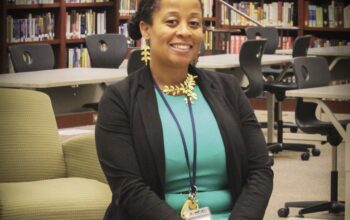Amidst the government shutdown and the start of the 116th congress, there’s another government we should be looking toward: the Washington State Legislature. Sworn in on Monday, January 14, 22 new members entered the House and six entered the Senate. As state lawmakers start their 105-day legislative session, they are tasked with writing a new two-year state budget.
Democrats increased their margins in both houses after the November election, and now hold a 28-21 majority in the Senate and a 57-41 majority in the House. Those Democratic freshmen lean progressive and could push the House, especially, on social and spending issues.
The 2019 session has more women than any since 2000, and more minorities than any previous Legislature. In the House, 30 Democratic women constitute a majority of the Democratic majority. Washington ranks fourth among state legislatures for the highest percentage of women, at 40 percent. If a woman is selected to fill the Senate opening caused by Democrat Kevin Ranker’s recent withdrawal over sexual misconduct allegations, it will tie the record 60 women legislators in 1999-2000.
Senator Ranker of Orcas Island resigned amid an outside investigation into inappropriate conduct with a former legislative assistant. House Republicans are also in the midst of awaiting the outcome of the process of choosing a replacement for Representative Matt Manweller, who submitted his resignation letter last month after allegations of a relationship with a former high school student in the 1990s when she was 17 and allegations of inappropriate conduct at Central Washington University, where he was fired from his professor position last August.
During his chamber speech, House Speaker Frank Chopp, who has been elected to a twelfth session, addressed the issue of sexual harassment at the Capitol, saying that among the work lawmakers need to achieve this year is “getting our own house in order.” He noted the work of lawmakers, lobbyists and staff over the past year to come up with recommendations and a code of conduct: “Together, we will create a workplace where everyone is treated with respect,” he said.
The first Native American woman in the House, Swinomish tribal member Debra Lekanof is representing Washington’s 40th District. A resident of Bow, Skagit County, Lekanoff is part Tlingit and Aleut, and has worked for the Swinomish Tribe for more than 15 years. She is “committed to the strength of our communities and believe we all have a role to help this place be sustainable. We are the people of the Salish Sea, whether we call ourselves environmentalists, business and industry leaders, farmers, fishermen, grandmothers or advocates. I believe we live in the most beautiful district in Washington, from the lakes and mountains of Whatcom County to the powerful rivers of the Skagit, to the islands of the Salish Sea. We all walk the shores here. I look forward to meeting with you and hearing your ideas for how we make this District and our communities even better.” She was appointed Vice Chair of the Environmental and Energy Committee: “I like to consider that our ability as Native Americans is to bring the generational way of decision-making to Washington state; we make decisions that have economic prosperity with environmental integrity,” said Lekanoff.
Senate Majority Leader Andy Billig, a Democrat from Spokane, said lawmakers would be moving forward on climate policies as well as making progress on improving the mental health system and that both parties will work toward solutions.
“We make better decisions when we have the broadest amount of input,” he said. “I believe we will work toward bipartisan solutions as much as we possibly can.”
Another first in the large House freshman class is My-Linh Thai, a Vietnamese American who is the first member who came to this country as a refugee and became a naturalized citizen. In the Senate, newly elected Democrat Mona Das was born in India.
Members of both parties will have a full agenda, Chopp and Republican leader J.T. Wilcox told members after the gavel came down to open the session. They must improve the state’s mental health care system and reduce homelessness, particularly among children.
For the first time in years, lawmakers will write a new budget without the primary focus being satisfying a court mandate on education funding, though they say there’s still work to be done to continue to improve basic education, especially on special education.
Mental health reform and funding is an area that the governor, Chopp, and lawmakers in both parties have said needs to be a top priority this year. Democratic Gov. Jay Inslee, who introduced his budget proposal last month, proposed $675 million in spending over the next two years to address the state’s behavioral health system, including expanding treatment options and additional housing support. Chopp announced last month that he would be stepping down from his leadership role at the end of the legislative session, but would remain a member of the Legislature. He has been the state’s longest-serving speaker and is the second longest-serving House speaker in the nation.


